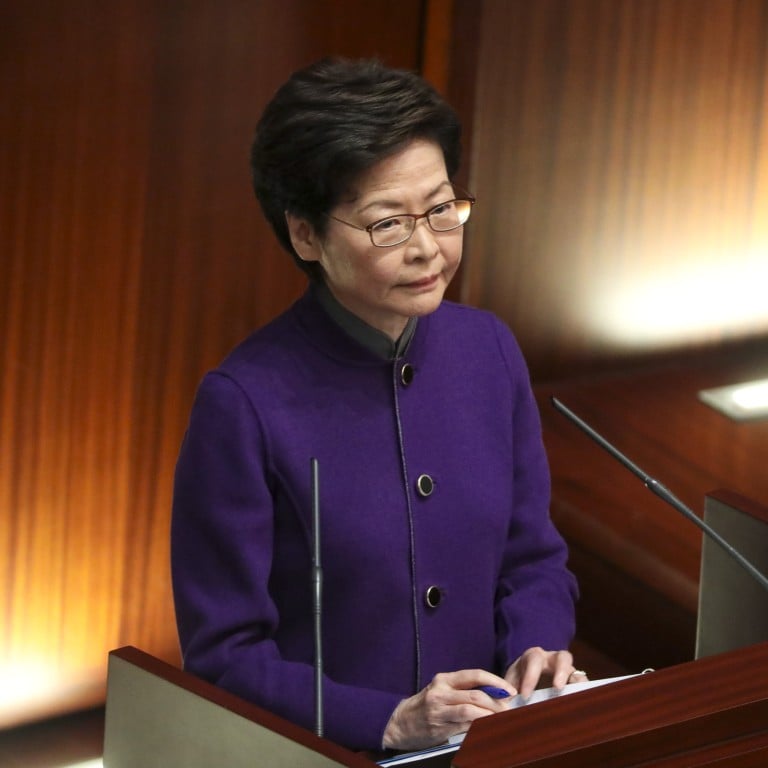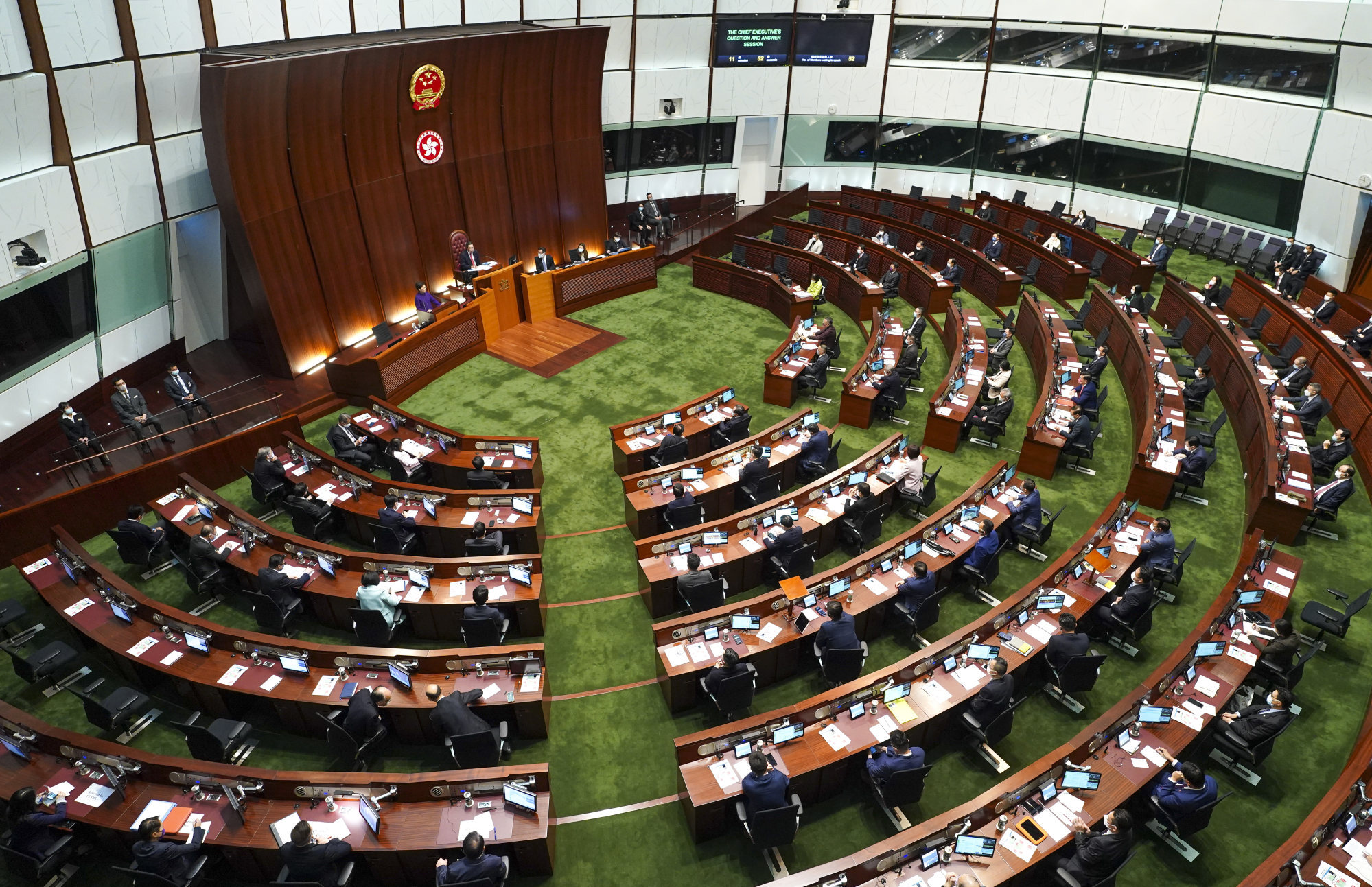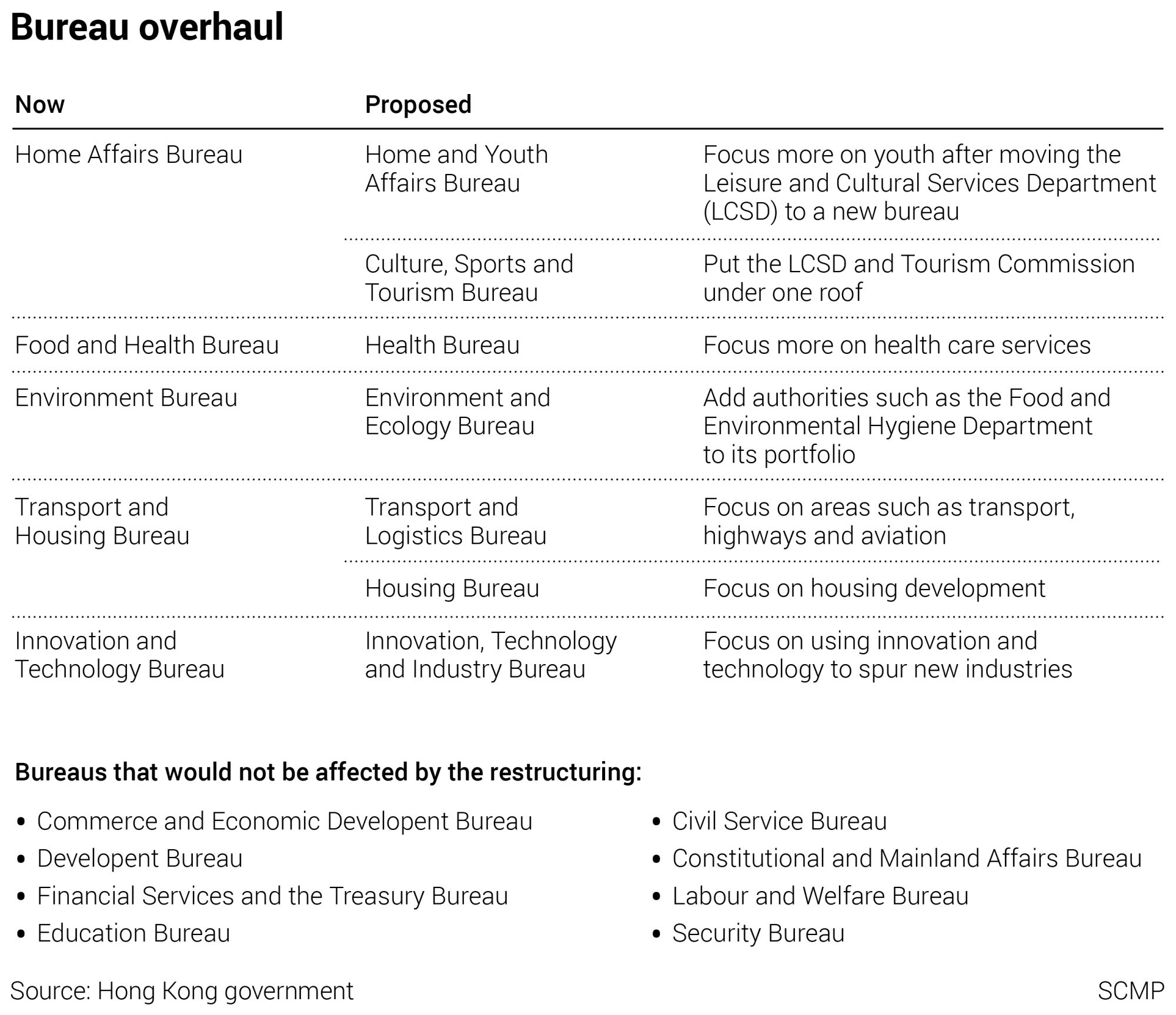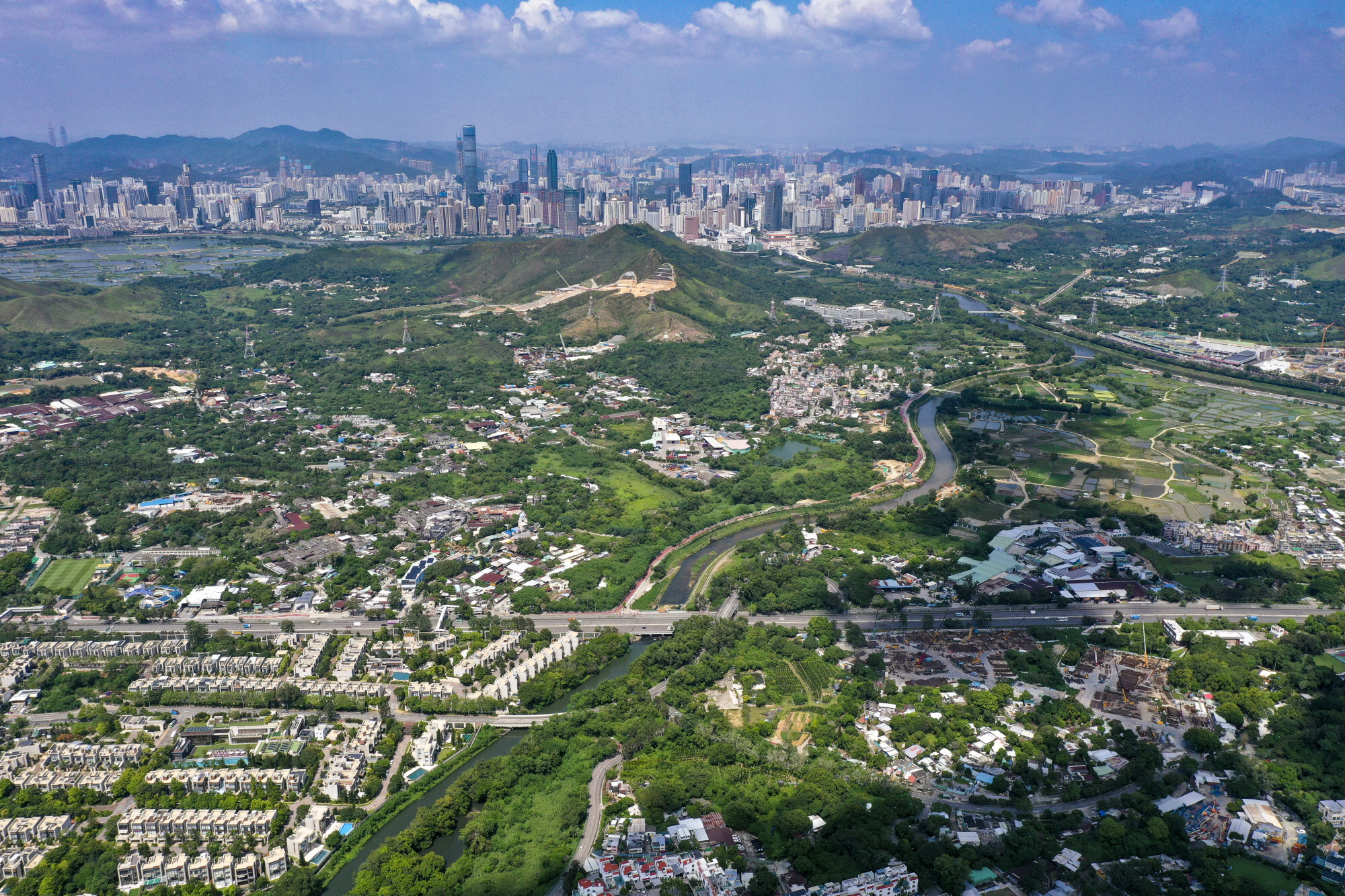
Feisty Hong Kong leader defends Omicron handling, lays out details for revamped bureaus and Northern Metropolis in testy opening session of overhauled legislature
- Chief Executive Carrie Lam opens meeting with ambitious speech laying out vision for new government structure and massive border town
- But she is also forced to defend her handling of the emerging fifth pandemic wave to lawmakers, who question if the government’s approach is lacking
Hong Kong’s leader opened the new legislative term on Wednesday with a speech that resembled a policy address in ambition and scope, as she mounted a stout defence of her handling of the Omicron outbreak and announced details of a plan to restructure government bureaus.
The quarantine violations along with a scandal that erupted when about a dozen of her senior officials attended a birthday party with hundreds of guests amid the widening outbreak have created a political crisis for the chief executive, who has not said whether she will seek a second term in March.

Lam told lawmakers that the official monitoring system had been working well but individuals were now breaking the rules.
“You can’t blindly criticise anti-epidemic officials for not performing their job just because of violation of rules by one individual,” Lam told Roundtable lawmaker Michael Tien Puk-sun at the first meeting of the revamped Legislative Council following Beijing’s “patriots-only” electoral overhaul.
In a break from past practice, the first session began with a 90-minute question and answer session with the chief executive, rather than lawmakers taking their oaths, a ceremony which Lam presided over last week.
While most legislators focused their questions on the pandemic, Chan Hoi-yan, of the new Election Committee constituency, lambasted Lam for the government’s preventive measures, which she said was plagued by loopholes.
“I found [your allegation] very unacceptable as it is utterly unfair to tens of thousands of frontline and supporting staffers who are involved in the anti-pandemic effort,” Lam said, citing the low Covid-19 infection and death rate in Hong Kong compared to the rest of the world.
A visibly agitated Lam then spent 13 minutes dismissing the criticisms and two proposals that Chan, a former political assistant to the food and health minister, floated: to adopt mainland China-style universal testing and to “drastically” minimise the flow of people in the community before Lunar New Year next month.
‘Bad boys’ or good lawmakers? A look at legislators who pressed Hong Kong’s leader
Lam argued that her administration’s strategy of locking down any residential building where a confirmed infection has been identified while testing was carried out, as well as issuing screening orders to residents who had visited high-risk areas, had proved effective.
About 70 per cent of local Omicron cases were in fact detected in the government’s quarantine facility at Penny’s Bay, she added.
“I will not shoulder the consequences of giving up a focused testing model proven to be effective and hastily following others to conduct the so-called community testing,” Lam said, emphasising the importance of using strategies that were suitable for Hong Kong. “It is clear which option is more effective. Anti-epidemic work is not about slogans but one which is built up through implementation.”
Several pro-establishment legislators also blamed the emerging Omicron wave on Cathay Pacific, the city’s flagship airline, whose aircrew members had flouted home isolation rules and spread the variant in the community. But the lawmakers also pointed the finger at the government for allowing the employees to follow laxer quarantine rules.
Hong Kong Covid-19 rules may have been broken at birthday party: lawyers
Tien demanded an apology from Lam for creating “loopholes” in the pandemic control policy that eventually led to the current round of stepped up social-distancing measures. These included the closure of 15 types of businesses and a 6pm ban on dining inside restaurants.
He argued the catering industry had been dealt a serious blow just ahead of Lunar New Year, but Lam hit back by accusing the lawmaker of “blindly” criticising officials.
The chief executive maintained that the monitoring mechanism for aircrew had been effective, while repeating her pledge to review whether Cathay bore any responsibility.
Farmers worry Northern Metropolis plan leaves them out in the cold
In her opening speech, Lam revealed details of her plan to restructure the government by increasing the number of bureaus from 13 to 15, despite only five full months remaining in her term.
The revamp involves creating a new Culture, Sports and Tourism Bureau, splitting the current Transport and Housing Bureau into two separate ones, and expanding the Innovation and Technology Bureau to cover industry as well.
The Food and Health Bureau would be renamed the Health Bureau, the Home Affairs Bureau would become the Home and Youth Affairs Bureau, while the Environment Bureau would be transformed into the Environment and Ecology Bureau.

Lam said her administration aimed to submit the proposal for the changes and the views of lawmakers for the consideration of the chief executive-elect after the leadership race on March 27. Winning approval for the idea early would ensure there was enough time for the incoming leader to appoint principal officials before he or she took over on July 1.
She also urged society to work with the government to create favourable conditions for building the Northern Metropolis along the border with the mainland. Under the plan introduced in her last policy address, the government would oversee construction of up to 186,000 homes in the New Territories and establish a new cross-border railway linking the city with the Qianhai economic zone in Shenzhen over the next two decades.

Bills would be sent to Legco in this quarter to compress town planning, environment assessment and land resumption procedures, she said, adding a cross-bureau meeting had been held recently to identify ways to attract talent to Hong Kong.
Tik Chi-yuen, of the centrist Third Side party who was the sole moderate elected, did not have a chance to ask Lam a question during Wednesday’s meeting.
Who’s to blame for Hong Kong’s birthday party Covid-19 health scare?
Photos from the event suggest social-distancing rules may have been broken and the guests were sent into quarantine, with only some of them, including lawmakers and ministers, allowed to leave recently as more details about the exposure timeline emerged.
The 20 lawmakers who were at the party, as well as Election Committee Constituency legislator So Cheung-wing, did not attend the Legco meeting. He could not be reached for comments.
Speaking afterwards, Tien said he was surprised that Lam viewed his remarks as “blind opposition” to the government’s anti-pandemic efforts.
“I am deeply regretful for her ignorance to my modest apology request. It’s a matter of fact that the government performed poorly in guarding violations of Covid-19 rules,” he said.
Regina Ip Lau Suk-yee, of the New People’s Party, called the meeting “a very good beginning for Legco”.


